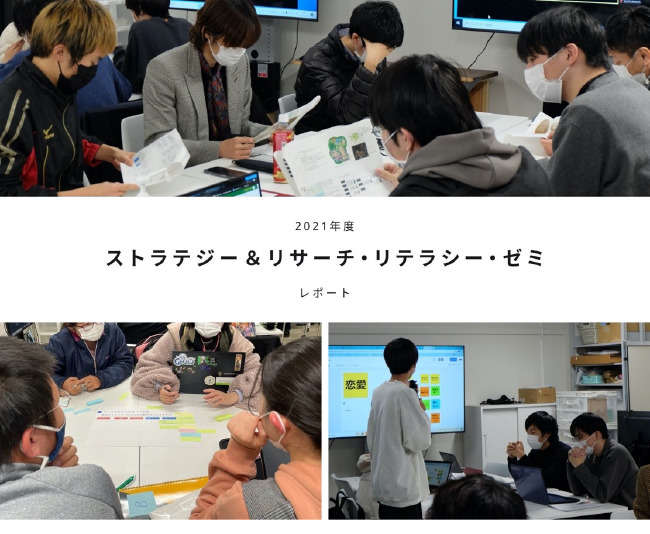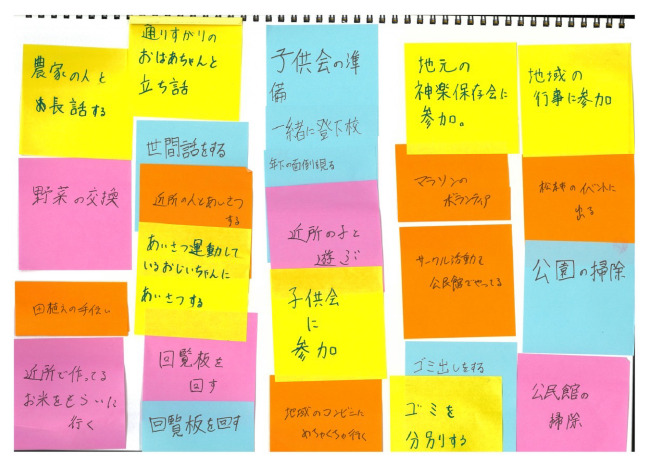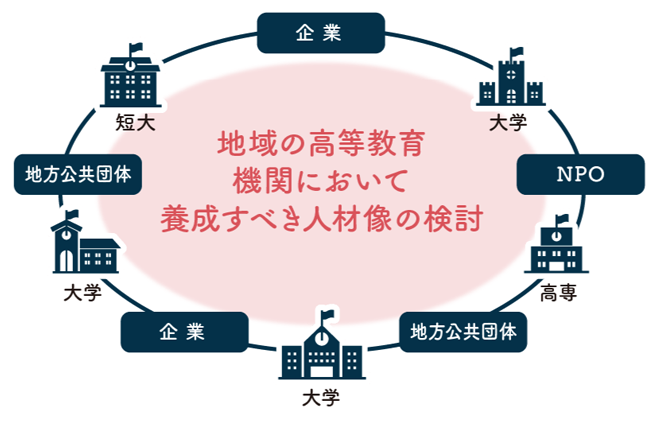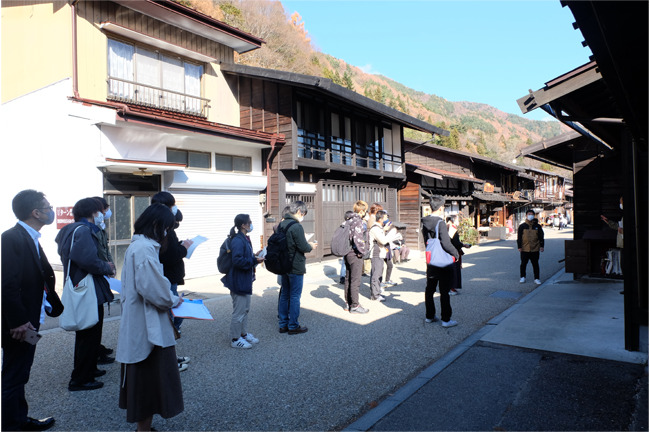"ENGINE" is a program that Shinshu University, Toyama University, and Kanazawa University have been working on since 3 with the aim of developing human resources who can lead regional revitalization.As part of this, Shinshu University is working on a unique course certification system, the "Cross-University Special Education Program," which aims to foster a deep understanding and experience of academics for students who have independence beyond specialized faculties.The program has been implemented since 2021, but from 2017 a new course has been opened to link with "ENGINE".
That is the "Strategy Design Human Resources Training Course".This course aims to develop human resources with data literacy to assemble theory by obtaining correct evidence and data, as well as thinking methods necessary for business strategy, policy formulation, and business evaluation.The "Strategy & Research Literacy Seminar," which is positioned as one of the startup courses, was held in the latter half of 2021 with a total of 15 lectures.

Solving community issues with strategic thinking based on correct data
"Strategy literacy" used as the subject name is strategic orientation / thinking.It refers to the ability to practice critical thinking that captures various things objectively and structurally, set issues to be tackled, and then design efficient and effective solutions. "Research literacy" is the skill of collecting, reading, and designing, conducting, and analyzing surveys with high validity and reliability.Obtaining survey design know-how necessary for collecting information to clarify issues, understanding index setting and analysis methods for objectively grasping phenomena and measuring changes, and correctly performing social surveys and statistical data The ability to decipher.In order to acquire these two abilities, it is necessary to have knowledge by working on output-type training that works on real regional problem solving in collaboration with local companies and local governments in parallel with input-type lectures. Understanding is the basis of this lesson.
Based on the above, there are three characteristics of the class.
(1) Universities engage with local communities such as governments, companies, public organizations, and NPOs to solve problems and issues.
(2) Learn and think about ways of regional revitalization and revitalization in a depopulating society that has never been experienced before.
(3) By exchanging opinions with others in group work and thinking and experiencing for yourself, you will acquire various perspectives and flexibility, and develop the ability to think about mechanisms, mechanisms, and systems to solve problems.
As a result, in addition to the recent population decline, it is the whole class that correctly and flexibly grasps social changes such as the COVID-19 epidemic, obtains accurate evidence, strategically analyzes problems, and gains the power to solve problems. I'm aiming.On the other hand, since this class is intended for first-year students and students from various faculties are taking it, it is important to first grasp the image of problem solving while setting the idea of strategy and data science as the base. Emphasis was placed on it.

Collaboration with Shiojiri City, which works on community development focusing on autonomous organizations
It was Shiojiri City, Nagano Prefecture that cooperated in 2021.In a rural city adjacent to Matsumoto City, where the Shinshu University headquarters is located, we are working to create a community that emphasizes local communities such as residents' associations.However, since the decrease in the number of residents involved in local communities has become an issue year by year, especially among the younger generation, this class utilizes the "logic model" method required for policy and business strategy planning and problem solving. By doing so, we aim to realize the city's goal of "revitalizing the local community" and "a community-based society (creating an independent, safe and secure environment where residents have a sense of ownership)". Conducted joint research.As part of the joint research, Shiojiri City participated in the class and created a lecture in collaboration with the university.

The collaboration between Shiojiri City and Shinshu University is not limited to this time, and there is a history of joint research on the theme of regional brands and city promotion.Under such circumstances, Shiojiri City established the public-private partnership type think tank organization "Shiojiri Future Creation Lab" in 2021.He has been conducting his own policy research.In response to this trend, the desire to obtain an approach and know-how from an academic point of view has led to this collaboration.On the other hand, the university aimed to create further knowledge by actually having students face local issues in the field of the local community.It is also the purpose of this class to enhance each phase by linking both sides and embodying the exchange and creation of knowledge by making the best use of each other's fields of expertise and environment.
In addition, while the number of remote lessons is increasing due to coronavirus at Shinshu University, in this lesson, face-to-face lessons were held after taking measures against the new coronavirus infectious disease, and one of the things was that we actually went to fieldwork in Shiojiri City. It is a feature.


